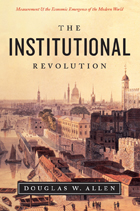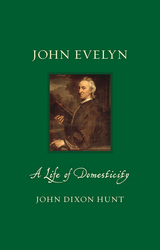3 books about Stuarts, 1603-1714

From Counter-Reformation to Glorious Revolution
Hugh Trevor-Roper
University of Chicago Press, 1992
This collection is the third in a series which gathers the best historical essays of Hugh Trevor-Roper, considered by many the unequalled master of the form.
The pieces here range from an account of the Jesuit Matteo Ricci's mission in China in the sixteenth century to a discussion of the Anglo-Scottish Union. They include essays on medicine at the early Stuart Court, on the plunder of artistic treasures in Europe during the wars of the seventeenth century, on the plans of Hugo Grotius to create a new universal church on an Anglican base, on the Glorious Revolution of 1688 and religious toleration thereafter. There are also biographical studies of Archbishop Laud, Matthew Wren, the Earl of Clarendon, and Prince Rupert.
As Noel argument wrote in Our Age, Hugh Trevor-Roper has "perfected the historical essay as the most beguiling form of enlightening readers about the past. He is the most eloquent, sophisticated and assured historian of Our Age, and has never written an inelegant sentence or produced an incoherent arguement."
The pieces here range from an account of the Jesuit Matteo Ricci's mission in China in the sixteenth century to a discussion of the Anglo-Scottish Union. They include essays on medicine at the early Stuart Court, on the plunder of artistic treasures in Europe during the wars of the seventeenth century, on the plans of Hugo Grotius to create a new universal church on an Anglican base, on the Glorious Revolution of 1688 and religious toleration thereafter. There are also biographical studies of Archbishop Laud, Matthew Wren, the Earl of Clarendon, and Prince Rupert.
As Noel argument wrote in Our Age, Hugh Trevor-Roper has "perfected the historical essay as the most beguiling form of enlightening readers about the past. He is the most eloquent, sophisticated and assured historian of Our Age, and has never written an inelegant sentence or produced an incoherent arguement."
[more]

The Institutional Revolution
Measurement and the Economic Emergence of the Modern World
Douglas W. Allen
University of Chicago Press, 2011
Few events in the history of humanity rival the Industrial Revolution. Following its onset in eighteenth-century Britain, sweeping changes in agriculture, manufacturing, transportation, and technology began to gain unstoppable momentum throughout Europe, North America, and eventually much of the world—with profound effects on socioeconomic and cultural conditions.
In The Institutional Revolution, Douglas W. Allen offers a thought-provoking account of another, quieter revolution that took place at the end of the eighteenth century and allowed for the full exploitation of the many new technological innovations. Fundamental to this shift were dramatic changes in institutions, or the rules that govern society, which reflected significant improvements in the ability to measure performance—whether of government officials, laborers, or naval officers—thereby reducing the role of nature and the hazards of variance in daily affairs. Along the way, Allen provides readers with a fascinating explanation of the critical roles played by seemingly bizarre institutions, from dueling to the purchase of one’s rank in the British Army.
Engagingly written, The Institutional Revolution traces the dramatic shift from premodern institutions based on patronage, purchase, and personal ties toward modern institutions based on standardization, merit, and wage labor—a shift which was crucial to the explosive economic growth of the Industrial Revolution.
[more]

John Evelyn
A Life of Domesticity
John Dixon Hunt
Reaktion Books, 2018
The great English writer and gardener John Evelyn (1620–1706) kept a diary all his life. Today, this diary is considered an invaluable source of information on more than fifty years of social, cultural, religious, and political life in seventeenth-century England. Evelyn’s work is often overshadowed by the literary contributions of his contemporary and friend, Samuel Pepys. This new biography changes that.
John Dixon Hunt takes a fresh look at the life and work of one of England’s greatest diarists, focusing particularly on Evelyn’s “domesticity.” The book explores Evelyn’s life at home, and perhaps even more importantly, his domestication of foreign ideas and practices in England. During the English Civil Wars, Evelyn traveled extensively throughout Europe, taking in ideas on the management of estate design while abroad to apply them in England. Evelyn’s greatest accomplishment was the import of European garden art to the UK, a feat Hunt puts into context alongside a range of Evelyn’s social and ethical thinking. Illustrated with visual material from Evelyn’s time and from his own pen, the book is an ideal introduction to a hugely important figure in the shaping of early modern Britain.
John Dixon Hunt takes a fresh look at the life and work of one of England’s greatest diarists, focusing particularly on Evelyn’s “domesticity.” The book explores Evelyn’s life at home, and perhaps even more importantly, his domestication of foreign ideas and practices in England. During the English Civil Wars, Evelyn traveled extensively throughout Europe, taking in ideas on the management of estate design while abroad to apply them in England. Evelyn’s greatest accomplishment was the import of European garden art to the UK, a feat Hunt puts into context alongside a range of Evelyn’s social and ethical thinking. Illustrated with visual material from Evelyn’s time and from his own pen, the book is an ideal introduction to a hugely important figure in the shaping of early modern Britain.
[more]
READERS
Browse our collection.
PUBLISHERS
See BiblioVault's publisher services.
STUDENT SERVICES
Files for college accessibility offices.
UChicago Accessibility Resources
home | accessibility | search | about | contact us
BiblioVault ® 2001 - 2025
The University of Chicago Press









